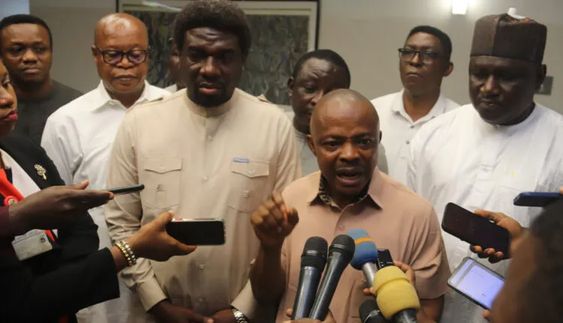Headlines
Minimum Wage Clash: NLC Fires Back at Governors’ Pay Restrictions

The Nigeria Labour Congress (NLC) expressed strong disapproval towards the governors’ stance on allowing states to set their own minimum wage, labeling it as dictatorial and undermining the established national minimum wage model in the country.
The NLC emphasized the importance of a collective agreement on a national wage floor to ensure a minimum standard of living for all workers, highlighting the potential negative impact on Nigerian workers and the economy if states were to independently determine minimum wages.
Negotiations surrounding a potential increase in the minimum wage have been a prominent topic of discussion at the national level for several months. Factors such as the removal of fuel subsidy and the fluctuation of the naira have contributed to a rise in inflation, prompting further deliberations on revising the wage structure for employees.
READ ALSO: ASUU and Nigerian Government hold private meeting amid looming strike
Throughout these negotiations, both labor unions and government representatives have made concessions, yet a mutually agreeable resolution remains elusive. In response to the impasse, workers initiated a warning strike, causing disruptions in key sectors like power to emphasize their grievances.
The Nigeria Employers’ Consultative Association (NECA), representing the organized private sector, cautioned against adopting a minimum wage exceeding N62,000. This warning came after the Federal Executive Council (FEC) deferred a decision on the wage matter for additional consultations, underscoring the complexity of the issue at hand.
